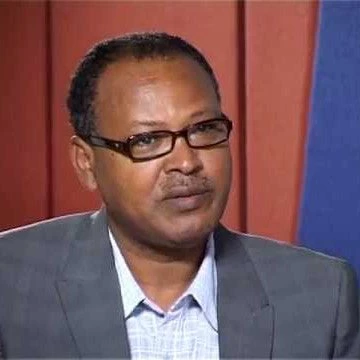 farmer-led irrigation narrow
farmer-led irrigation narrow
Esperance Uwimbabazi is a farmer leading irrigation. She lives and operates her farm in Rwanda’s Gatsibo District. Although her farming operations are currently successful, this was not always the case. Throughout her interview, she emphasized how farming was dependent on the rain in the past – and now, due to farmer-led irrigation development, she uses irrigation technology and has market access.
The major change in her agriculture project is consistency; she grows crops in all seasons, whether or not it is rainy or dry. This means that there are more jobs, more food, and more knowledge about growing different types of crops and irrigation technologies.
Esperance’s story, as well as others, were featured during the gold standard* farmer-led irrigation event at Stockholm World Water Week 2019 – jointly organized by the World Bank Group, the Alliance for a Green Revolution in Africa, the United States Agency for International Development, the International Water Management Institute, and the Water for Food Institute.
The farmer-led irrigation (FLI) main event and world café session featured diverse stakeholders – including innovators, thinkers, and doers – to demonstrate the powerful role that FLI can play in spurring inclusive economic growth, food and livelihood security, and job generation. It provided an innovative platform to enable collective learning about innovative cases, successes, and failure of FLI to support the scale-up of FLI efforts globally.
FLI is a revolution already in progress, with the potential to positively change the lives of millions of smallholder farmers and achieve the goal of improved livelihood and shared prosperity set at the 2014 African Union Summit. The event was based on a solid research evidence base and addressed the next step in the FLI challenge – how to expand access, opportunity, and benefit to more farmers worldwide, including those that are most resource poor.
Speakers at the FLI events emphasized the importance of adopting innovative approaches to scaling farmer-led irrigation, through building on the tools of entrepreneurship and the initiative of the private sector, while integrating access for women and resource poor farmers. Nine cases were presented, with a focus on innovation and entrepreneurship by female and youth farmers, field level researchers, and development partners from Rwanda, Uganda, Tanzania, Ethiopia, and Mozambique.
The World Bank Group and the United States Agency for International Development highlighted lessons from the World Café cases, while the Alliance for a Green Revolution in Africa closed the session with reflections on advances in collective learning and commitments to future actions. The case studies included: analyzing business models for smallholder irrigation service provision in Rwanda by Daugherty Water for Food Global Institute; and gender and water technologies in Ethiopia by the International Water Management Institute.
The video sessions enabled farmers themselves – like Esperance Uwimbabze -- to join the discussion, and showed that impressive way farmers are innovating. For example, in Ethiopia, solar technologies are expanding. And, across all cases, farmers are innovating based on the market. The following short films were screened for the diverse audience, followed by discussions on the same: Irrigated fodder in Ethiopia (Feed the Future Innovation Lab for Small-Scale Irrigation); Farmer-led Irrigation in Action in Rwanda (World Bank Group); and “Not want, but need” (International Water Management Institute).
International Finance Corporation Agribusiness Water Specialist Richard Colback emphasized the importance of scalability of farmer-led irrigation. He discussed the challenges of scale-up, and how to mainstream inclusive FLI in on-the-ground projects and development activities.
Alliance for a Green Revolution in Africa (AGRA) Country Manager for Uganda John Jagwe focused on the next steps for farmer-led irrigation, and closing the missing link. AGRA is an institute that plays a critical role in generating adapted local technologies that are focused on increasing yields and improving incomes of millions of smallholder farmers.
Overall, the event strongly demonstrated concerted interest in farmer-led irrigation, evidence for farmer-led irrigation expansion, and momentum of implementation of farmer-led irrigation. Everyone is coming together across the development spectrum to back FLI expansion – from theory to implementation.
Own, afford, operate, benefit, include, leapfrog, grow, lead, innovate: these are a few of the words that come to mind when reflecting on the farmer-led irrigation session at Stockholm World Water Week. By supporting and bringing to light smallholder farming enterprises, we help to articulate a distributed irrigation approach that helps job generation, shepherds environmental sustainability, and helps to meet the global demand for food and agricultural commodities.
To learn more about the farmer-led irrigation at the world bank, visit www.worldbank.org/farmerledirrigation.
*Gold standard events are committed to ensure the gender balance in speakers/panelists and young professional representation in the session.



Join the Conversation